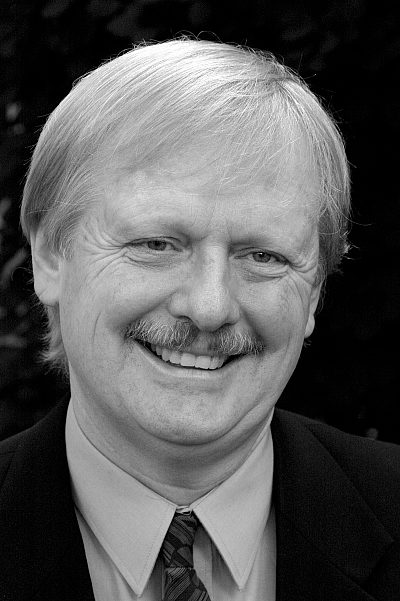June 2, 2005
Growing importance of outreach discussed
Editor’s note: This is one of a series of articles by the chairs of the Faculty Senate councils and committees. Bill Erdly is the chair of the Faculty Council on Educational Outreach.
Increasing the public’s access to higher education opportunities plays a vital role in the growth and development of the UW as we reach out beyond the bricks and mortar of our three campuses. The Faculty Council on Educational Outreach (FCEO) focuses on issues facing the University related to Summer Quarter enrollment, self-sustaining degree program development, online learning initiatives, off-campus programs, certificate programs and English language programs.
FCEO works in close partnership with a number of University departments offering self-sustaining programs, including UW Educational Outreach (UWEO), to ensure faculty involvement in planning and decision making. In the past year, FCEO has established representation on the Continuing Education Directors Committee and the UWEO Visiting Committee.
During 2003/2004, 11,130 student FTEs participated in self-sustaining credit activity. Overall, self-sustaining educational activity, both credit and noncredit, served nearly 88,000 students through a variety of programs. As the main administrator of self-sustaining programs, UWEO provides critical alternative access points for students seeking a UW education. Partnerships with other universities and public/private entities are constantly being established and maintained.
The projected growth of UWEO is that revenue and enrollments will likely increase 10 percent annually, with the greatest enrollment increase in onsite fee-based degrees, professional development programs, contracts with business, K-12 initiatives and international partnerships. To keep this pace requires that proper organizational processes, human resources and funding mechanisms be in place.
This past year, FCEO has embarked on a focused effort to understand the complexities of self-sustaining programs supported through UWEO and other University departments and how issues related to quality of degree offerings, program development, national/international scope, course content, and reliance on continued growth from self-sustaining programs affect UW faculty, staff and students. Research studies were also presented that helped identify industry, government and education perspectives on the challenges facing higher education. A pervasive theme was the increased need and reliance on timely, accessible and quality programs tailored to meet the varying needs of a diverse student body.
One of our first initiatives is to develop a Web-based Faculty Resource Guide where faculty can find information about leveraging resources for new course and/or program development, different models (and development processes) for self-sustaining degree programs, content ownership of course materials developed by UW faculty, and specific issues related to teaching online courses. Checklists will be developed for faculty and departments embarking on new self-sustaining program efforts. These checklists will provide assistance for accessing key resources — and ensuring compliance with the UW Handbook and other important processes/procedures.
Another important discussion revolves around the role of Summer Quarter. It has a history that is steeped in tradition and in process; however, how can UW further leverage Summer Quarter to meet increasing enrollment pressures, increase access to current “bottleneck” courses for our students and further support our research, teaching and service goals?
FCEO is examining existing legislation related to the use of distance learning (DL) designators on student transcripts. Courses that are currently being taught using DL technologies (greater than 50 percent) receive a special DL “tag” on the transcript. The committee is examining the impact of this tag on UW students. Questions related to DL equivalency to classroom courses, impact of DL-tagged courses on transcript reviews by other college admission committees, DL quality, and the increased “blurring” between what is classroom and technology-based learning will be addressed. Research strategies to examine DL-designated courses are being pursued with input from Enrollment Services.
Other important initiatives that FCEO is exploring include:
- Use of the library and other core resources by EO students and faculty.
- Availability of, and funding for, tenure/tenure-track faculty lines through EO.
- Methods to incorporate UW research activities within distance learning and other self-sustaining activities.
- Transfer/articulation agreements and degree pathways for students who take self-sustaining credit courses.
- Identification of opportunities and options for the participation of emeritus faculty in self-sustaining course/program development and delivery.
The 2005-2006 year promises to be an active year for our three-campus University (and beyond). FCEO will continue to partner with University departments offering self-sustaining programs to bring forward issues of importance to the Faculty Senate and the University community at large. Should you have questions or comments for FCEO, please send e-mail to erdlyww@u.washington.edu.
Members of the FCEO for 2004-2005 are: Bill Erdly (Bothell, computing & software systems) chair, Richard Jeffrey Wilkes (physics), Saeed Daniali (construction management), D. Scott Eberhart (aeronautics and astronautics), Layne Goldsmith (art, art history, and design), Brenda Zierler (biobehavioral nursing and health), Barbara P. Warnick (communication), Arnold Berger (Bothell, computing & software systems); David Szatmary (vice provost for educational outreach ex officio), and Thomas Deardorff (ALUW representative).

